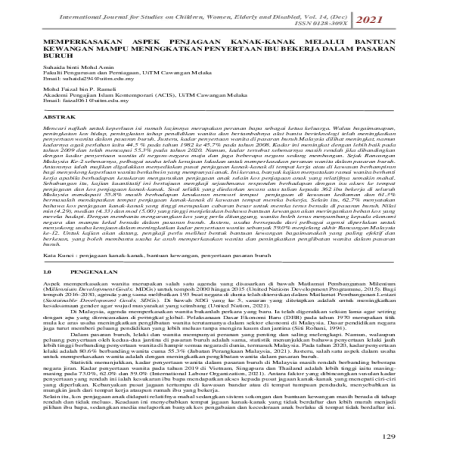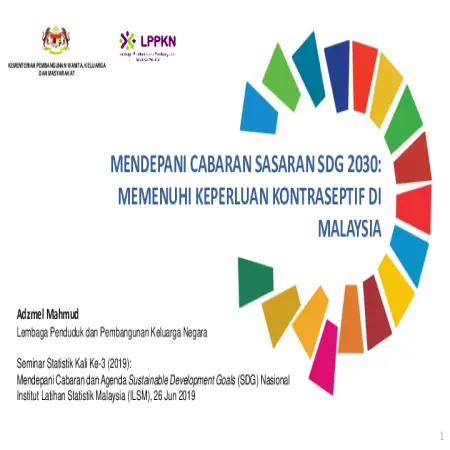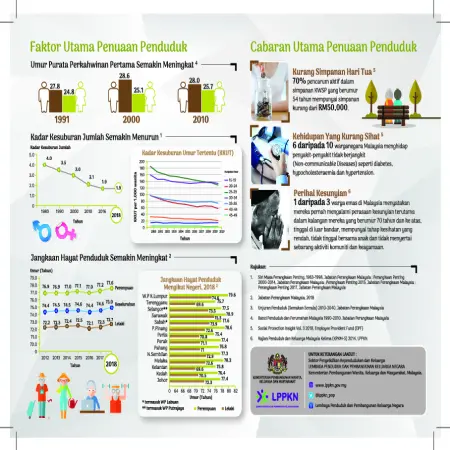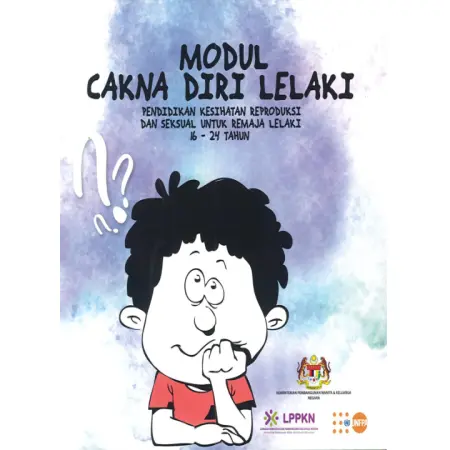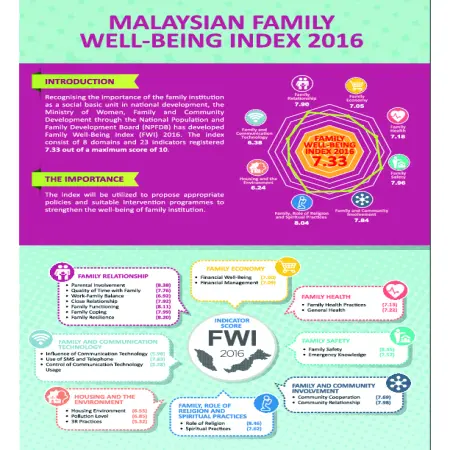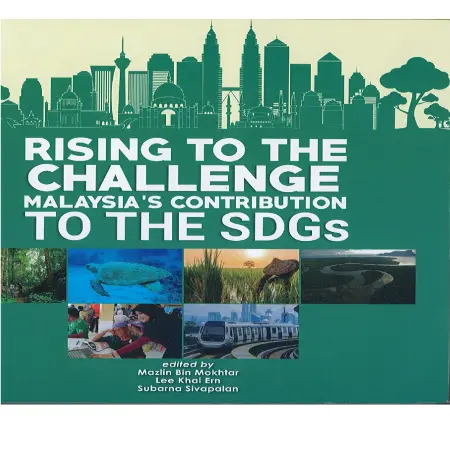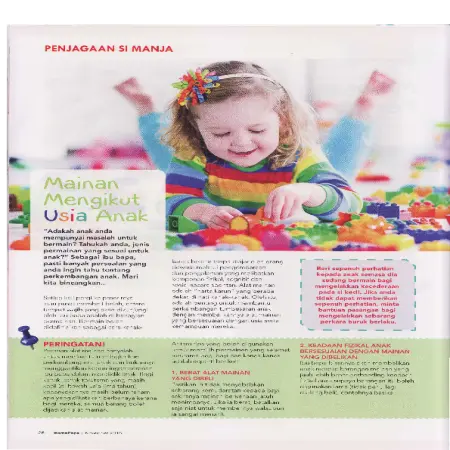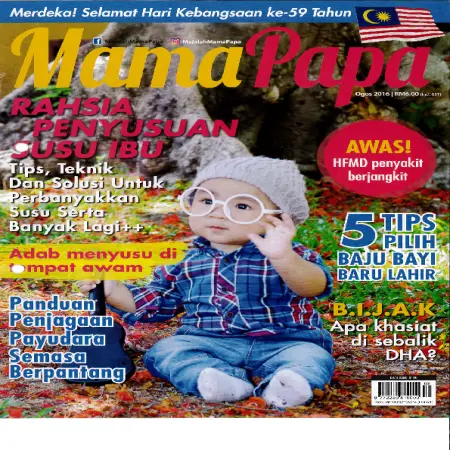PUBLICATIONS
|
|
Memperkasakan aspek penjagaan kanak-kanak melalui bantuan kewangan mampu meningkatkan penyertaan ibu bekerja dalam pasaran buruh
Item Type: Article
Editor:
Year: 00/12/2021
Abstract: Since the 2nd Malaysia Plan in fact, various efforts have been made by the government to empower the role of women in the labour market. One of that is employers are encouraged to provide childcare centers at work or in nearby areas to support the needs of married women with children. This is because, many studies state that many women quit their jobs when faced with difficulties of managing childcare in addition to the relatively increasing cost of childcare. Therefore, this quantitative study aims to examine the extent to which respondents are faced with the issue of access to childcare and the cost of childcare. The survey distributed online to 362 working mothers across Malaysia found that 55.8% still faced difficulties in finding childcare in their residential areas and 61.3% had problems finding childcare in their working area.
|
|
|
|
|
|
Mendepani cabaran sasaran SDG 2030: memenuhi keperluan kontraseptif di Malaysia
Item Type: Conference or Workshop Item
Editor:
Year: 00/00/2019
Abstract: This paper will present on the trends and achievements of contraceptive use rates, unmet contraceptive requirements and modern contraceptive demands met. In addition, the presentation will also touch on issues and challenges on the rate of contraceptive use which is still hovering around 50 to 52 percent over the past three decades as well as the level of unmet needs in Malaysia which is relatively high compared to other Asean countries.
|
|
|
|
|
|
Malaysia negara tua 2030
Item Type: Infographic
Editor:
Year: 00/12/2018
Abstract: This infographic shows about the main factors and challenges of aging in Malaysia. According to the United Nations (UN) definition, senior citizens are among those aged 60 and above. This definition was introduced during the “World Assembly on Aging” held in Vienna in 1982. In recognition of the elderly, the UN through Resolution No. 45/106 has also declared October 1 as International Senior Citizens Day. In Malaysia, the National Senior Citizens Day celebration has been celebrated on October 1 every year since 1992.
|
|
|
|
|
|
Modul Cakna Diri Lelaki Pendidikan Kesihatan Reproduksi dan Seksual Untuk Remaja Lelaki Berumur 16-24 Tahun
Item Type: Module
Editor:
Year: 00/01/2018
Abstract: The Sexual and Reproductive Health Module for boys and young men age 16 to 24 years was developed to address sexual and reproductive health as well as social issues for boys and young men. It is also aim to create awareness on the importance of reproductive health and social education as well as gender equality for future well-being. This module is divided into two (2) main target groups i.e. general adolescents (Module A) and most-at-risk adolescents (Module B). The main components of Module A includes topics on adolescent growth, developmental, health, psychosocial - 3R (Respect, Relationship and Responsibility), laws and regulations, drugs and substance abuse. Module B covers topics on risky social behaviors, risky sexual behaviors and teen pregnancy. This module is developed as an interactive form using various learning methods such as role play, sketches, group work and discussions to attract participation of boys and young men.
|
|
|
|
|
|
Malaysian Family Well-Being Index 2016
Item Type: Infographic
Editor:
Year: 00/02/2017
Abstract: Recognising the importance of the family institution as a social basic unit in national development, the Ministry of Women, Family and Community Development Board (NPFDB) has developed Family Well-Being Index (FWI) 2016. The consist of 8 domains and 23 indicators registered 7.33 out of a maximum score of 10.
|
|
|
|
|
|
Mama Care
Item Type: Book Section
Editor:
Year: 01/01/2017
Abstract: One aspect of women's reproductive health care which is increasingly in demand is postnatal care services. In order to improve the welfare of women in low-income households and to recognise the skills traditionally passed down from generation to generation, Mama Care Postnatal Care Programme was established in 2012 under the 7th National Blue Ocean Strategy (NBOS), 1Malaysia Women's Initiative and Self Empowerment (1MWISE). It is targeted single mothers, elderly and women from low-income household.
|
|
|
|
|
|
Malaysian Family Wellbeing Index
Item Type: Book Section
Editor:
Year: 00/00/2017
Abstract: Family institutions need to be strengthened to balance the rapid process of social and economic development of the country. This is important because the family is the basic social unit that prepares the supplies the human capital for the national development. Given the importance of family wellbeing for the future of the nation, scientific studies ought to be conducted to measure the wellbeing of families in this country.
|
|
|
|
|
|
Malaysian infertile men and women : do they suffer mental health issues?
Item Type: Conference or Workshop Item
Editor:
Year: 00/00/2017
Abstract: This study revealed that Malaysian infertile men and women demonstrated susceptibility to mental health problems that occurs more commonly among women than men. Thus, this study may facilitate fertility facilities to strategize and redesign better intervention for the infertile couples.
|
|
|
|
|
|
Mainan mengikut usia anak
Item Type: Article
Editor:
Year: 00/11/2016
Abstract: The role of toys is only to help improve the development of the child and not to replace the importance of the role of parents in educating the child. For children, especially those who are still young (under the age of five), most of them still do not understand what is said to be dangerous because for them, all items can be used as toys. Among the tips that can be used to choose games that are safe, especially for babies and children are such as the weight of the toy purchased, not easily removable or broken, suitable for the child's age and others.
|
|
|
|
|
|
Memilih jantina bayi: bahagian 2
Item Type: Article
Editor:
Year: 00/08/2016
Abstract: From time immemorial, our ancestors practiced certain tips and diets to get the desired gender of the child. However, there is still no scientific explanation of the effectiveness and accuracy of the practice. Learn how to determine the sex of a baby from a scientific point of view.
|
|
|
|





